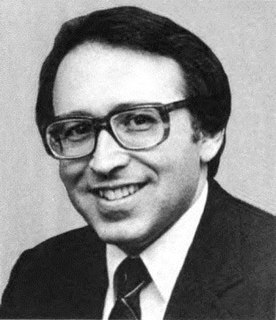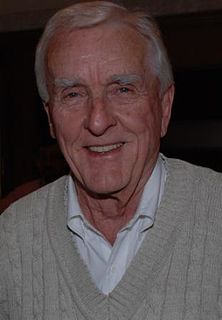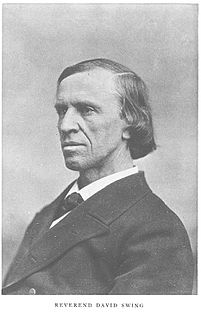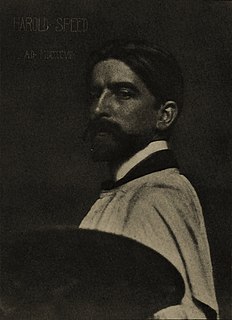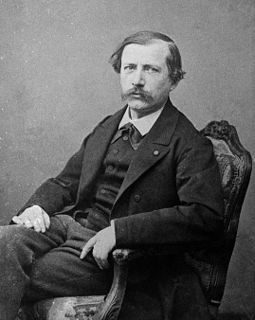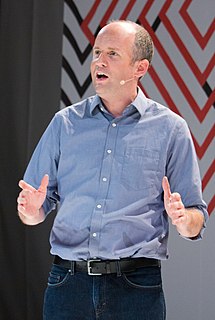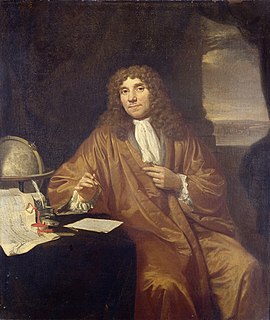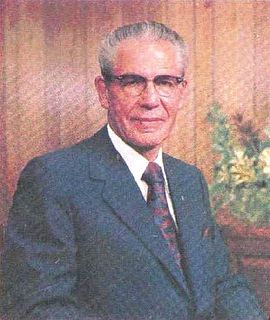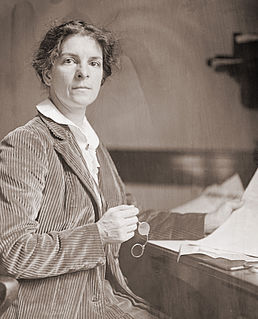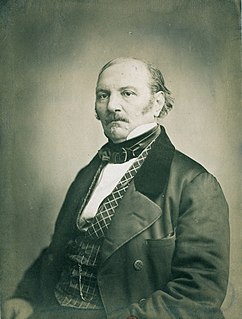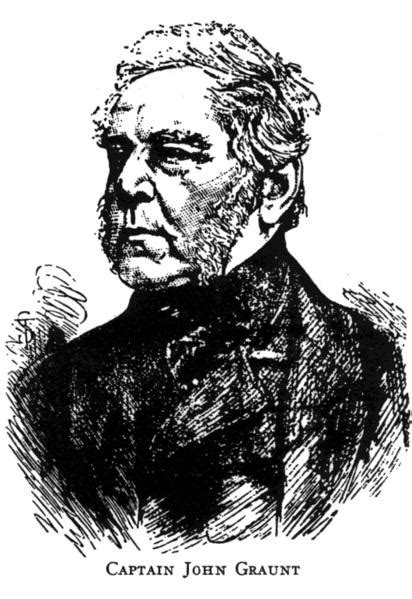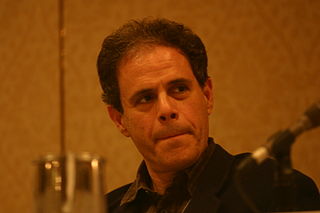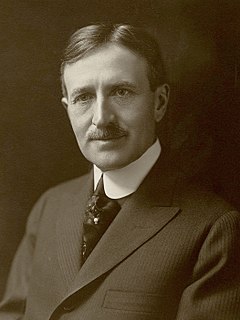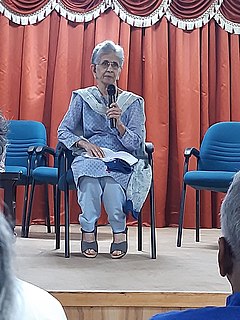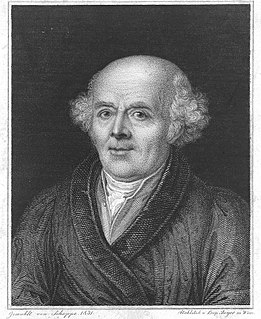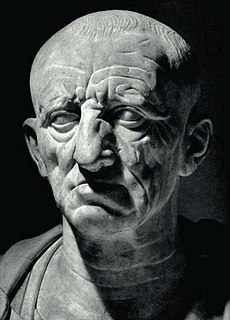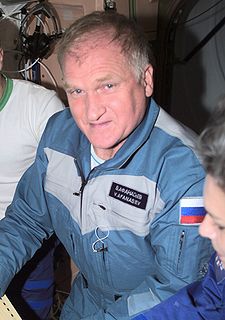Top 967 Observed Quotes & Sayings - Page 16
Explore popular Observed quotes.
Last updated on April 20, 2025.
The NSF study projected a shortfall of 675,000 scientists and engineers without considering the future demand for such individuals in the marketplace. It simply observed a decline in the number of 22-year-olds and projected that this demographic trend would result in a huge shortfall. This could be termed the supply-side theory of labor market analysis. But making labor market projections without considering the demand side of the equation doesn't pass the laugh test with experts in the field.
Most of the people buying the Soviet paraphernalia were Americans and West Europeans. All would be sickened by the thought of wearing a swastika. None objected, however, to wearing the hammer and sickle on a T-shirt or a hat. It was a minor observation, but sometimes, it is through just such minor observations that a cultural mood is best observed. For here, the lesson could not have been clearer: while the symbol of one mass murder fills us with horror, the symbol of another mass murder makes us laugh.
Imagine that someone said or did something cruel to you, but that you did not react in any way whatsoever – you did not become upset, resentful or even ruffled. You simply observed that this person was saying or doing something cruel, as though you were calmly observing the scene in a movie. You simply would not be stressed by what would appear to others to be a highly stressful encounter. Stress and cruelty affect us as profoundly as they do only because we react to them resentfully.
The best ideas aren't hidden in shadowy recesses. They're right in front of us, hidden in plain sight. Innovation seldom depends on discovering obscure or subtle elements but in seeing the obvious with fresh eyes. This is easier said than done because nothing is as hard to see as what's right before our eyes. We overlook what we take for granted. Billions of tea drinkers observed the force of steam escaping from water boiling in a kettle before James Watt realized that this vapor could be converted into energy.
WHEREAS it is the duty of all Nations to acknowledge the providence of Almighty God, to obey His will, to be grateful for His benefits, and humbly to implore His protection and favour; and Whereas both Houses of Congress have, by their joint Committee, requested me "to recommend to the people of the United States a DAY OF PUBLICK THANKSGIVING and PRAYER, to be observed by acknowledging with grateful hearts the many signal favors of Almighty God, especially by affording them an opportunity peaceably to establish a form of government for their safety and happiness."
Competition has never been more threatening than it is now. Innovative thinkers challenge the status quo in their organizations. They are often viewed as "troublemakers." They threaten the defenders of the status quo. So competition within an organization can also be brutal. The most effective leaders overcome "the ideology of comfort and the tyranny of custom" by being change agents themselves. They encourage and reward innovative thinking. I have observed that people only resist changes imposed on them by other people.
In 1694 a law was passed "that every settler who deserted a town for fear of the Indians should forfeit all his rights therein." But now, at any rate, as I have frequently observed, a man may desert the fertile frontier territories of truth and justice, which are the State's best lands, for fear of far more insignificant foes, without forfeiting any of his civil rights therein. Nay, townships are granted to deserters, and the General Court, as I am sometimes inclined to regard it, is but a deserters' camp itself.
Suppose one who had always continued blind be told by his guide that after he has advanced so many steps he shall come to the brink of a precipice, or be stopped by a wall; must not this to him seem very admirable and surprising? He cannot conceive how it is possible for mortals to frame such predictions as these, which to him would seem as strange and unaccountable as prophesy doth to others. Even they who are blessed with the visive faculty may (though familiarity make it less observed) find therein sufficient cause of admiration.
There just isn’t a weak season of 'Breaking Bad.' There’s just superior work, a sprint toward evil that turned into a marathon. But like all big-talker shows that bring their heavy cargo in for a rough and breathlessly observed landing, 'Breaking Bad' didn’t quite leave itself enough runway to satisfactorily end some of its better story lines, especially once the chronology gap closed up between the flash-forwards from last year’s episodes and Sunday night’s conclusion. One could easily argue that there was just too much left to do in this one episode.
One would naturally expect that the Lord Jesus Christ would be sufficiently important to receive ample notice in the literature of his time, and that extensive biographical material would be available. He was observed by multitudes of people, and his own followers numbered into the hundreds (1 Cor. 15:6), whose witness was still living in the middle of the first century. As a matter of fact, the amount of information concerning him is comparatively meager. Aside from the four Gospels, and a few scattered allusions in the epistles, contemporary history is almost silent concerning him.
I was not yet three years old when my mother determined to send one of my elder sisters to learn to read at a school for girls we call the Amigas. Affection, and mischief, caused me to follow her, and when I observed how she was being taught her lessons I was so inflamed with the desire to know how to read, that deceiving - for so I knew it to be - the mistress, I told her that my mother had meant for me to have lessons too. ... I learned so quickly that before my mother knew of it I could already read.
As many critics of religion have pointed out, the notion of a creator poses an immediate problem of an infinite regress. If God created the universe, what created God? To say that God, by definition, is uncreated simply begs the question. Any being capable of creating a complex world promises to be very complex himself. As the biologist Richard Dawkins has observed repeatedly, the only natural process we know of that could produce a being capable of designing things is evolution.
One of the things I noticed about the Trump supporters was a lot of projected fear. I can't tell you how many times a conversation went like this: "We've got to stop these immigrants, because it's terrible." I'd say, "Okay, what personally have you observed about this?" And there would be basically nothing in that box. And I'd say, "Where'd you get your information?" thinking they were going to say Fox. But they would always say, "Well, I get my information from all kinds of sources." Fox is kind of center-left to a lot of people now.
But what exceeds all wonders, I have discovered four new planets and observed their proper and particular motions, different among themselves and from the motions of all the other stars; and these new planets move about another very large star [Jupiter] like Venus and Mercury, and perchance the other known planets, move about the Sun. As soon as this tract, which I shall send to all the philosophers and mathematicians as an announcement, is finished, I shall send a copy to the Most Serene Grand Duke, together with an excellent spyglass, so that he can verify all these truths.
The second reason why we haven't observed the growing gap is that our historical and social science analyses have concentrated on what has been happening within the 'middle classes' - that is, to that ten to fifteen percent of the population of the world-economy who consumed more surplus than they themselves produced. Within this sector there really has been a relatively dramatic flattening of the curve between the very top (less than one percent of the total population) and the truly 'middle' segments, or cadres (the rest of the ten to fifteen percent).
The life of Lincoln should never be passed by in silence by young or old. He touched the log cabin and it became the palace in which greatness was nurtured. He touched the forest and it became to him a church in which the purest and noblest worship of God was observed. His occupation has become associated in our minds with the integrity of the life he lived. In Lincoln there was always some quality that fastened him to the people and taught their to keep time to the music of his heart.
The object of your training in drawing should be to develop to the uttermost the observation of form and all that it signifies, and your powers of accurately portraying this on paper.
Let painstaking accuracy be your aim for a long time. When your eye and hand have acquired the power of seeing and expressing on paper with some degree of accuracy what you see, you will find facility and quickness of execution will come of their own accord.
Unflinching honesty must be observed in all your studies. It is only then that the ‘you’ in you will eventually find expression in your work.
Memory is therefore, neither Perception nor Conception, but a state or affection of one of these, conditioned by lapse of time. As already observed, there is no such thing as memory of the present while present, for the present is object only of perception, and the future, of expectation, but the object of memory is the past. All memory, therefore, implies a time elapsed; consequently only those animals which perceive time remember, and the organ whereby they perceive time is also that whereby they remember.
It must not be supposed that happiness will demand many or great possessions; for self-sufficiency does not depend on excessive abundance, nor does moral conduct, and it is possible to perform noble deeds even without being ruler of land and sea: one can do virtuous acts with quite moderate resources. This may be clearly observed in experience: private citizens do not seem to be less but more given to doing virtuous actions than princes and potentates. It is sufficient then if moderate resources are forthcoming; for a life of virtuous activity will be essentially a happy life.
Do these fuels result always and necessarily in one way from the decomposition of a pre-existing organic substance? Is it thus with the hydrocarbons so frequently observed in volcanic eruptions and emanations, and to which M. Ch. Sainte-Claire Deville has called attention in recent years? Finally, must one assign a parralel origin to carbonaceous matter and to hydrocarbons contained in certain meteorites, and which appear to have an origin foreign to our planet? These are questions on which the opinion of many distinguished geologists does not as yet appear to be fixed.
The routines of almost all famous writers, from Charles Darwin to John Grisham, similarly emphasise specific starting times, or number of hours worked, or words written. Such rituals provide a structure to work in, whether or not the feeling of motivation or inspiration happens to be present. They let people work alongside negative or positive emotions, instead of getting distracted by the effort of cultivating only positive ones. ‘Inspiration is for amateurs,’ the artist Chuck Close once memorably observed. ‘The rest of us just show up and get to work.
There used to be this guy called Vinny who worked on the floor of the stock exchange, said one big investor who had observed the market for a long time. After the markets closed Vinny would get into his Cadillac and drive out to his big house in Long Island. Now there is the guy called Vladimir who gets into his jet and flies to his estate in Aspen for the weekend. I used to worry a little about Vinny. Now I worry a lot about Vladimir
I observed certain animalcules, within whole bodies I saw so quick a motion as to exceed belief; they were about the size of a large grain of sand, and their bodies being transparent, that the internal motion could plainly be seen. Among other things, I saw in the body of one of these animalcules a bright and round corpuscle, placed near the head, and in which a very wonderful swift motion was to be seen, consisting of an alternate extension and contraction. This particle I concluded to be the heart.
I observed that the successful farmer worked at his job. He would do his plowing, disking, harrowing, seeding, and harvesting in the proper season and at the proper time, while his neighbor was procrastinating, or off hunting and fishing while the work was still to be done. We must learn to set our priorities straight. No one can be successful in his line of work unless he works at it in the proper season and plays in the proper season.
When you set about your composing, it may be necessary for your ease, and better distillation of wit, to put on your worst clothes, and the worse the better; for an author, like a limbeck, will yield the better for having a rag about him: besides that, I have observed a gardener cut the outward rind of a tree (which is the surtout of it) to make it bear well; and this is a natural account of the usual poverty of poets, and is an argument why wits, of all men living, ought to be ill clad.
It is well-known that those who have charge of young infants, that it is difficult to feel sure when certain movements about their mouths are really expressive; that is when they really smile. Hence I carefully watched my own infants. One of them at the age of forty-five days, and being in a happy frame of mind, smiled... I observed the same thing on the following day: but on the third day the child was not quite well and there was no trace of a smile, and this renders it probable that the previous smiles were real.
Reformers have long observed city people loitering on busy corners, hanging around in candy stores and bars and drinking soda popon stoops, and have passed a judgment, the gist of which is: "This is deplorable! If these people had decent homes and a more private or bosky outdoor place, they wouldn't be on the street!" That judgment represents a profound misunderstanding of cities. It makes no more sense than to drop in at a testimonial banquet in a hotel and conclude that if these people had wives who could cook, they would give their parties at home.
Valentine had long ago observed that in a society that expected chastity and fidelity, like Lusitania, the adolescents who controlled and channeled their youthful passions were the ones who grew up to be both strong and civilized. Adolescents in such a community who were either too weak to control themselves or too contemptuous of society's norms to try usually ended up being either sheep or wolves- either mindless members of the herd or predators who took what they could and gave nothing.
The domestic NSA-led Surveillance State which Frank Church so stridently warned about has obviously come to fruition. The way to avoid its grip is simply to acquiesce to the nation's most powerful factions, to obediently remain within the permitted boundaries of political discourse and activism. Accepting that bargain enables one to maintain the delusion of freedom - "he who does not move does not notice his chains," observed Rosa Luxemburg - but the true measure of political liberty is whether one is free to make a different choice.
On occasion I have observed parents shopping to clothe a son about to enter missionary service. The new suits are fitted, the new shoes are laced, and shirts, socks, and ties are bought in quantity. I met one father who said to me, 'Brother Monson, I want you to meet my son.' Pride popped his buttons; the cost of the clothing emptied his wallet; love filled his heart. Tears filled my eyes when I noticed that his [the father's] suit was old, his shoes well worn; but he felt no deprivation. The glow on his face was a memory to cherish.
Detection is, or ought to be, an exact science and should be treated in the same cold and unemotional manner. You have attempted to tinge it with romanticism, which produces much the same effect as if you worked a love-story ... Some facts should be suppressed, or, at least, a just sense of proportion should be observed in treating them. The only point in the case which deserved mention was the curious analytical reasoning from effects to causes, by which I succeeded in unravelling it.'' —Sherlock Holmes on John Watson's "pamphlet", "A Study in Scarlet".
At a tender age, I commandeered half a quire of foolscap from my father's desk and sat down to write a book. ...I had observed onprinted fly leaves the words "By the author of, etc." ...So under the title of my prospective work I wrote: By the author of "Les Miserables," "The Woman in White," "Dombey and Son," "Tom Brown's Schooldays" and "Our Life in the Highlands," the last-named being an opus of good Queen Victoria. I had not read all these works but they existed on our bookshelves, and I hoped to produce something worthy of comparison.
The tree was so old, and stood there so alone, that his childish heart had been filled with compassion; if no one else on the farm gave it a thought, he would at least do his best to, even though he suspected that his child's words and child's deeds didn't make much difference. It had stood there before he was born, and would be standing there after he was dead, but perhaps, even so, it was pleased that he stroked its bark every time he passed, and sometimes, when he was sure he wasn't observed, even pressed his cheek against it.
God did not create the evil. He established the laws which are always good because he is good. The spirits would have been completely happy had they faithfully observed the law since the beginning. But, being free to make choices, the spirits have not properly obeyed them so that evil come as a consequence of this unwillingness. One can then say that good corresponds to everything which is in accordance with God's law while evil is everything which opposes it.
Mind is dual, it always divides things into polar opposites: the conqueror and the conquered, the observer and the observed, the object and the subject, the day and the night. It goes on dividing things which are not divided. Neither is the day divided from the night, nor is birth divided from death. They are one energy. But mind goes on dividing everything into polarities, opposites. Nothing is opposite in existence; every contradiction is only apparent. Deep down all contradictions are meeting together.
In Hong Kong, Dallas, or at home —and regardless of whether or not I have been to bed — breakfast is a personal ritual that can only be properly observed alone, and in a spirit of genuine excess. The food factor should always be massive: four Bloody Marys, two grapefruits, a pot of coffee, Rangoon crepes, a half pound of either sausage, bacon, or corned beef hash with diced chilies , a Spanish omelette or eggs Benedict, a quart of milk, a chopped lemon for random seasoning, and something like a slice of Key lime pie, two margaritas, and six lines of the best cocaine for dessert.
The first thing to say is that the ordinary criminal law in this country, the Human Rights Act, the Children's Act, all of the laws of the country take precedence, but what I'm also saying is that within the context of a secular country, which Britain now kind of is, or at least a country which purports to be relatively equal between religions, there should be some scope for allowing faith communities to govern themselves - subject to it being consensual and subject to everyone's human rights being observed.
I don't need to praise anything so justly famous as Frost's observation of and empathy with everything in Nature from a hornet to a hillside; and he has observed his own nature, one person's random or consequential chains of thoughts and feelings and perceptions, quite as well. (And this person, in the poems, is not the "alienated artist" cut off from everybody who isn't, yum-yum, another alienated artist; he is someone like normal people only more so - a normal person in the less common and more important sense of normal.)
Having always observed that most of them who constantly took in the weekly Bills of Mortality made little other use of them than to look at the foot how the burials increased or decreased, and among the Casualties what had happened, rare and extraordinary, in the week current; so as they might take the same as a Text to talk upon in the next company, and withal in the Plague-time, how the Sickness increased or decreased, that the Rich might judg of the necessity of their removal, and Trades-men might conjecture what doings they were likely to have in their respective dealings.
It's true, there aren't many explicit references to Canada in my book. And not many explicit references to the U.S., either. I try to fill my poems with enough real, observed detail that the poems create a believable world - but I don't write poems for the sake of telling my own story. My life is not important or interesting enough to warrant that kind of documentary. Instead I try to use my experience as a way of understanding situations that are common to many people. I want readers to project their own lives onto my poems.
If you make a habit of sincere prayer, your life will be very noticeably and profoundly altered. Prayer stamps with its indelible mark our actions and demeanor. A tranquillity of bearing, a facial and bodily repose, are observed in those whose inner lives are thus enriched. Within the depths of consciousness a flame kindles. And man sees himself. He discovers his selfishness, his silly pride, his fears, his greeds, his blunders. He develops a sense of moral obligation, intellectual humility. Thus begins a journey of the soul toward the realm of grace.
The 4th sort of creatures... which moved through the 3 former sorts, were incredibly small, and so small in my eye that I judged, that if 100 of them lay [stretched out] one by another, they would not equal the length of a grain of course Sand; and according to this estimate, ten hundred thousand of them could not equal the dimensions of a grain of such course Sand. There was discover'd by me a fifth sort, which had near the thickness of the former, but they were almost twice as long.
The first time bacteria were observed.
If someone were to ask whether communications skills or meekness is most important to a marriage, I'd answer meekness, hands down. You can be a superb communicator but still never have the humility to ask, 'Is it I?' Communication skills are no substitute for Christlike attributes. As Dr. Douglas Brinley has observed, 'Without theological perspectives, secular exercises designed to improve our relationship and our communication skills (the common tools of counselors and marriage books) will never work any permanent change in one's heart: they simply develop more clever and skilled fighters!
"Why is it that at a bachelor's establishment the servants invariably drink the champagne? I ask merely for information." "I attribute it to the superior quality of the wine, sir. I have often observed that in married households the champagne is rarely of a first-rate brand." "Good Heavens! Is marriage so demoralizing as that?" "I believe it is a very pleasant state, sir. I have had very little experience of it myself up to the present. I have only been married once. That was in consequence of a misunderstanding between myself and a young person."
Thomas Gordon, founder of P.E.T. (Parent Effectiveness Training), observed that when children are behaving in a way that interferes with your ability to meet your needs, shouting direct orders to them doesn't work very well. So, he advised sending I messages. That is, a better alternative to, Your room is a disaster area-clean it up this minute, would be something like, I get embarrassed when Mrs. Johnson is visiting and sees your room looking this messy, so I need you to clean it up.
The aim of scientific thought, then, is to apply past experience to new circumstances; the instrument is an observed uniformity in the course of events. By the use of this instrument it gives us information transcending our experience, it enables us to infer things that we have not seen from things that we have seen; and the evidence for the truth of that information depends on our supposing that the uniformity holds good beyond our experience.
Knowledge signifies things known. Where there are no things known, there is no knowledge. Where there are no things to be known, there can be no knowledge. We have observed that every science, that is, every branch of knowledge, is compounded of certain facts, of which our sensations furnish the evidence. Where no such evidence is supplied, we are without data; we are without first premises; and when, without these, we attempt to build up a science, we do as those who raise edifices without foundations. And what do such builders construct? Castles in the air.
Others, again, give us the mere carcass of another man’s thoughts, but deprived of all their life and spirit, and this is to add murder to robbery. I have somewhere seen it observed, that we should make the same use of a book, as a bee does of a flower; she steals sweets from it, but does not injure it; and those sweets she herself improves and concocts into honey. But most plagiarists, like the drone, have neither taste to select, nor industry to acquire, nor skill to improve, but impudently pilfer the honey ready prepared from the hive.
An executive cannot gradually dismiss details. Business is made up of details and I notice that the chief executive who dismisses them is quite likely to dismiss his business. Success is the sum of detail. It might perhaps be pleasing to imagine oneself beyond detail and engaged only in great things, but as I have often observed, if one attends only to great things and lets the little things pass the great things become little; that is, the business shrinks.
I have observed this in my experience of slavery, - that whenever my condition was improved, instead of its increasing my contentment, it only increased my desire to be free, and set me to thinking of plans to gain my freedom. I have found that, to make a contented slave, it is necessary to make a thoughtless one. It is necessary to darken his moral and mental vision, and, as far as possible, to annihilate the power of reason. He must be able to detect no inconsistencies in slavery; he must be made to feel that slavery is right; and he can be brought to that only when he ceased to be a man.
It has been said that the three great develpments in twentieth century science are relativity, quantum mechanics, and chaos. That strikes me the same as saying that the three great developments in twentith century engineering are the airplane, the computer, and the pop-top aluminum can. Chaos and fractals are not even twentieth century ideas: chaos was first observed by Poincare and fractals were familiar to Cantor a century ago, although neither man had the computer at his disposal to show the rest of the world the beauty he was seeing.
Marriage is a very strange thing. It's a very public institution, it's meant to tell the world that two people are going to live together, to declare that their children will be legal, that these children can inherit their property. It's meant for social living, to ensure that some rules are observed, so that men and women don't cross the lines drawn from them. At the same time, marriage is an intensely private affair, no outsider will know the state of some one else's marriage. It's a closed room, a locked room...
The orthodox school has witnessed for centuries that nature itself has never once cured any existing disease with another dissimilar one, however intense. What must we think of this school, which nevertheless has continued to treat chronic diseases allopathically, with medicines and formulas that can only cause a disease condition -God knows which -dissimilar to the one being treated? Even if these physicians have not hitherto observed nature attentively enough, the miserable results of their treatment should have taught them that they were on the wrong road.
One might think this means that imaginary numbers are just a mathematical game having nothing to do with the real world. From the viewpoint of positivist philosophy, however, one cannot determine what is real. All one can do is find which mathematical models describe the universe we live in. It turns out that a mathematical model involving imaginary time predicts not only effects we have already observed but also effects we have not been able to measure yet nevertheless believe in for other reasons. So what is real and what is imaginary? Is the distinction just in our minds?
It is often to be observed, that as in digging for precious metals in the mines, much earthly rubbish has first to be troublesomely handled and thrown out ; so, in digging in one s soul for the fine gold of genius, much dulness and common-place is first brought to light. Happy would it be, if the man possessed in himself some receptacle for his own rubbish of this sort: but he is like the occupant of a dwelling, whose refuse cannot be clapped into his own cellar, but must be deposited in the street before his own door, for the public functionaries to take care of.
Some months ago we discovered that certain light elements emit positrons under the action of alpha particles. Our latest experiments have shown a very striking fact: when an aluminium foil is irradiated on a polonium preparation [alpha ray emitter], the emission of positrons does not cease immediately when the active preparation is removed: the foil remains radioactive and the emission of radiation decays exponentially as for an ordinary radio-element. We observed the same phenomenon with boron and magnesium.
There’s no way to rule innocent men. The only power any government has is the power to crack down on criminals. Well, when there aren’t enough criminals, one makes them. One declares so many things to be a crime that it becomes impossible for me to live without breaking laws. Who wants a nation of law-abiding citizens? What’s there in that for anyone? But just pass the kind of laws that can neither be observed or enforced nor objectively interpreted - and you create a nation of law-breakers - and then you cash in on guilt.
When you have arrived at your country house and have saluted your household, you should make the rounds of the farm the same day, if possible; if not, then certainly the next day. When you have observed how the field work has progressed, what things have been done, and what remains undone, you should summon your overseer the next day, and should call for a report of what work has been done in good season and why it has not been possible to complete the rest, and what wine and corn and other crops have been gathered.
It followed us during half of our orbit. We observed it on the light side, and when we entered the shadow side, it disappeared completely. It was an engineered structure, made from some type of metal, approximately 40 meters long with inner hulls. The object was narrow here and wider here, and inside there were openings. Some places had projections like small wings. The object stayed very close to us. We photographed it, and our photos showed it to be 23 to 28 meters away.
God help us, ma'am! Do you see what we saw? We saw that we'd been given a law to live by, a moral law, they called it, which punished those who observed it - for observing it. The more you tried to live up to it, the more you suffered; the more you cheated it, the bigger reward you got. Your honesty was like a tool left at the mercy of the next man's dishonesty. The honest ones paid, the dishonest collected. The honest lost, the dishonest won. How long could men stay good under this sort of a law of goodness?
